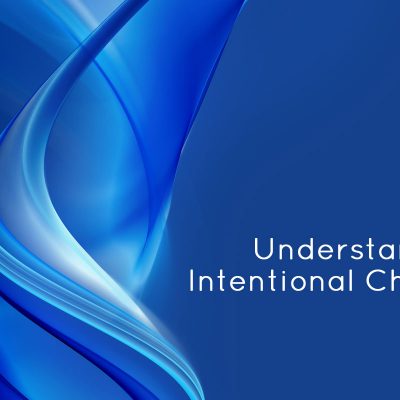
He said “no”. He had read that it was important to learn from ‘mistakes’ rather than to perceive the mistakes as failures and that becoming a learning organization would improve the performance of his organization. As we talked a bit more about what he wanted he told me the story of too many complaints from their customers and a growing dissatisfaction with the organization.
I asked him why he chose the strategy of developing as a learning organization when so much was at stake. He said that he had given the matter careful consideration and concluded that he had the right people for the job. He didn’t want to move people around or let them go from the organization. He said that due to the nature of the work and needing to be so task focused, the employees and volunteers didn’t seem to understand the implications of some of their actions, words, and lack of actions. And after examining other possible strategies, he felt that his best option was to support the shift to being a learning organization.
I took the same deep breath that I always do when the request for the ‘learning organization’ comes in. I then said what I always say “your organization is already a learning organization…by their nature, people are always learning. They may be learning things that are beneficial for the organization and its customers, or they may be learning things that are not beneficial…either way, they are learning. In fact, some of the hardest work is to accomplish un-learning of what is not working.”
There was the anticipated long pause as he thought about his organization as a learning organization already. And then came the question “how do I make the shift that includes un-learning what isn’t working and replacing it with what is more beneficial for the organization and its customers?”
Here is what I suggested, and it may be just right for you also.
- Remove the focus about needing to become a learning organization. A focus on the learning organization is going to confuse people, it is going to cause them to feel judged, maybe with a bit of shame thrown in, and it is going to feel like a very big step adding a lot of pressure.
- Remove the focus about needing to ‘fix’ something.
- Adopt a holistic perspective to organizational development. This perspective assumes that the blueprint for just the right solutions is within the organism, within the people that make up the organization. This is a ‘we can do it, we are amazing’ attitude and message.
- Focus on growth and development as normal in organizations in a similar way that these are normal in the life of the individual.
- Add peer to peer mentoring circles as a scheduled part of the work cycle. These mentoring circles of three hours (or longer from time to time) could be scheduled monthly or once a season. They provide the people with the opportunity for reflection, conversation, identifying topics about which they are concerned or inspired, and lead to awareness, growth and improvement. People naturally let go of what is no longer working, and replace the old learning with new learning.
He asked me if I could mentor his leadership team to learn to facilitate mentoring circles. I replied that I was happy to do so. I proposed that they took a one day workshop with us about mentoring to better understand how to make the most of what was undertaken. I proposed that the whole team also learn Whole Person Process Facilitation as they needed a method of facilitation that was in alignment with the holistic approach of ‘we can do it and we have the solutions’. He said that four days was a lot of learning just to have mentoring circles. I assured him that the learning would serve multiple purposes in the organization beyond the mentoring circles.
By shifting the focus from becoming a learning organization to having ongoing mentoring in the organization through mentoring circles, the focus becomes on facilitating learning that is beneficial for the organization, its people, and its customers. Regular mentoring circles support the conditions for intentional learning that is the right kind of learning to support the organization in increased knowledge sharing, collaborative problem solving, and identifying opportunities for future growth and development.
Photo by Štefan Štefančík on Unsplash











Leave a Reply
You must be logged in to post a comment.